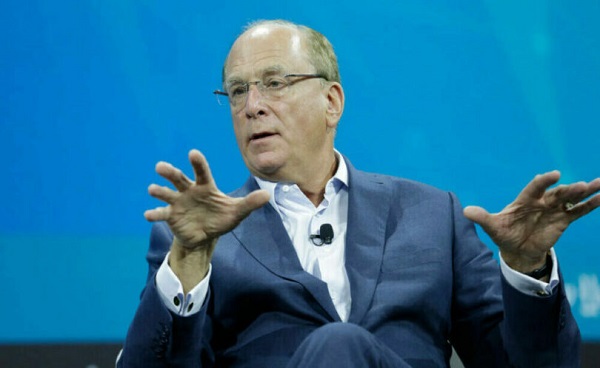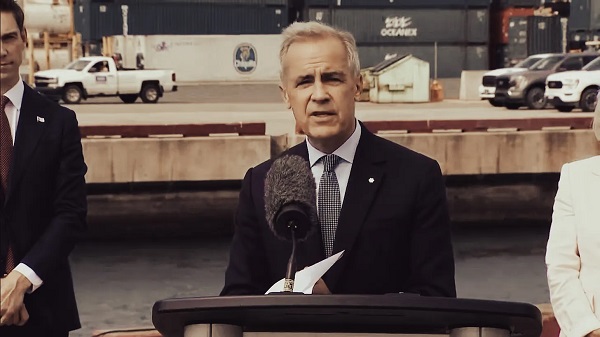DEI
School boards need leaders who focus on education not politics

From the Fraser Institute
Canada’s largest school board is looking for a new leader. Colleen Russell-Rawlins, director of education of the Toronto District School Board (TDSB), will retire this fall.
To say her tenure has been controversial would be an understatement. During her three years in the top job, TDSB doubled down on its diversity, equity and inclusion (DEI) policies, with tragic consequences. Former TDSB principal Richard Bilkszto took his own life last year after facing relentless harassment from other administrators for challenging DEI orthodoxy during a professional development session.
The harms caused by DEI extend even further. Two years ago, TDSB voted to abolish its merit-based admissions policy at specialized arts and sports schools in the name of “equity.” Parents of students in these schools were not happy about this erosion of standards. After spending years building up these specialized schools, TDSB is now tearing them down.
Add to this the ongoing harassment of Jewish students in TDSB schools and the failure of administrators to crack down on employees who disseminate blatantly anti-Israel propaganda. Expect things to get even worse if trustees replace Russell-Rawlins with someone with a similar mindset and approach.
Unfortunately, this is exactly what will happen if TDSB follows the guidelines provided by the Ontario Public Supervisory Officers’ Association (OPSOA), the organization representing superintendents and directors of education in Ontario.
To be eligible for the position, prospective directors of education must complete the OPSOA’s Supervisory Officer’s Qualification Program. However, this program looks like a woke propogandist’s dream. According to the OPSOA’s website, the qualification program focuses on “anti-oppression, anti-racism, [and] anti—colonialism.” No wonder education directors appear obsessed with these topics.
Education Minister Stephen Lecce has stated that he wants school boards to focus more on academics. He’s even gone so far as to publicly rebuke school boards that get mired in debates over secondary issues such as masks or transgender policy. Lecce is right to be concerned. From 2003 to 2022, Ontario’s PISA math test scores declined from 530 to 495. That’s the equivalent of nearly two years of learning loss. Clearly, something needs to change.
However, things will only change for the better when school boards start hiring education directors who reject DEI ideology and who put academics first. This means choosing men and women who haven’t climbed the career ladder by pushing DEI initiatives.
At a minimum, the province must drop the requirement for education directors to hold supervisory officer’s qualifications. Making the completion of a program replete with DEI buzzwords such as “anti-oppression” and “anti-colonial” mandatory is a surefire way to ensure that education directors will focus on non-academic issues.
Fortunately, the Ford government has started making at least some changes. Back in 2020, Ontario removed the requirement for directors of education to be former teachers. Considering the uselessness of most Bachelor of Education courses, it’s legitimate to ask why anyone would need an education degree to run a school board.
Obviously, none of this means that qualifications don’t matter. The Ford government’s recent announcement that all future teachers must pass a math proficiency test shows that basic competency matters. People working for school boards, particularly those in the top job, must also be familiar with the education system and know how to lead effectively.
It’s important to remember why we have schools in the first place. The purpose of education is to help students master the academic basics, acquire important life skills, and become responsible Canadian citizens—not to indoctrinate students into woke ideology.
Schools can only function if they have the trust of the communities they serve. If parents feel that teachers are ignoring their concerns or are disrespecting their beliefs, they will pull their kids out of the government school system and pursue other educational options. While parents should always have this right, it’s unfortunate when they are forced into it by administrators who are hostile to their values.
TDSB trustees have a real opportunity to make a change for the better by hiring an education director with a track record of putting academics first. Otherwise, TDSB will continue its downward spiral.
Real change starts at the top. Hopefully, TDSB trustees realize the importance of the decision they are about to make and hire the right person for the job.
Author:
Business
Cracker Barrel and the Power of Conservative Boycotts

The uproar over the restaurant chain’s rebrand might appear trivial, but it carries a deeper significance.
Last week, another viral culture war story captured the headlines. The old-timey restaurant chain Cracker Barrel had rebranded, removing the old man and the barrel from its logo, and replacing it with a simple, modernistic, typography-only design.
At first, I dismissed the story as trivial. I have never set foot in a Cracker Barrel and, as such, have little stake in what is emblazoned above its doorways. But after speaking with conservative activist Robby Starbuck, I learned there was something beyond the logo that deserved our attention. According to Starbuck, Cracker Barrel, whose customer base is heavily white, conservative, and rural, had spent the last few years adopting all the fashionable left-wing corporate policies: DEI, Pride, pronouns, race politics, and the rest.
The logo change might have caught the public’s initial attention, but the underlying political story had real stakes. If companies that depend on conservatives adopt radical left-wing policies, they must face the consequences.
And, thanks to the work of Starbuck and others, the social media uproar seems to have made a difference. As the story circulated through the media, the company’s stock price plummeted by as much as 17 percent. Cracker Barrel has quickly walked back its changes.
All this is salutary. Beginning with the revolt against Bud Light, the Right learned how to flex its muscles in the marketplace. Rather than defer to corporations as they did in the past, conservatives have realized that corporations have a culture and must be constantly reminded that, if they deviate from core American values, the consequences will be felt in their bottom line. Starbuck has had enormous success on this point, leading boycott campaigns that have changed policies at Harley-Davidson, Tractor Supply, John Deere, and other major brands.
A number of lessons can be drawn from this experience. First, conservatives can win these culture fights. Second, corporations follow the narrative in the media. Third, behavior changes through reward and punishment.
This last point is especially important. Some might dismiss the Cracker Barrel campaign as minor, or even embarrassing, given that the company is a decidedly down-class brand. But there is enormous value in making an example of the company and cementing a fear that conservatives can spontaneously lash out at any institution that crosses the line. Today, it’s Cracker Barrel; tomorrow it might be Pepsi, Target, or Procter & Gamble. As we have seen in recent years, corporate CEOs are highly sensitive to shifts in public opinion—and marginal changes in revenues—and will drop left-wing policies as soon as they become a liability.
The question is how to gain leverage. We are all tempted to be polite in public. But the fight over corporate culture can’t be won without securing real, tangible victories—which means real, tangible losses for institutions on the other side. Even if we don’t care about Cracker Barrel in particular, we should all care about the ideological capture of American institutions and use whatever power we have to reverse it.
And for that to occur, the Barrel must be broken.
Business
BlackRock CEO Larry Fink is new co-chair of WEF, finds no misconduct in Klaus Schwab

From LifeSiteNews
In what appears to be the most obvious conflict of interest in history, the World Economic Forum which was formed to infiltrate governments and influence government decisions has elected two of the world’s largest hedge fund managers as co-chairs.
The World Economic Forum (WEF) has elected BlackRock CEO Larry Fink and Roche Holding vice-chair Andre Hoffmann to serve as interim co-chairs of its board.
Last Friday, the WEF announced that the investigation into Klaus Schwab had found no misconduct by its former chairman and founder. In the same press release, the globalist organization also announced Fink and Hoffmann as new interim leaders.
Schwab was under investigation in April this year after a whistleblower alleged financial impropriety and behavioral issues. The 87-year-old Schwab had already resigned from his position as chairman of the board shortly before the investigation was launched.
“Minor irregularities, stemming from blurred lines between personal contributions and Forum operations, reflect deep commitment rather than intent of misconduct,” the WEF stated in regard to the allegations made against Klaus Schwab and his wife Hilde.
WATCH: Dark origin and agenda of Klaus Schwab’s World Economic Forum
“Following a thorough review of all facts, the Board has concluded that, while the organization must evolve toward a more institutional model, there is no evidence of material wrongdoing by Klaus Schwab,” the organization concluded.
Larry Fink is no stranger to the critics of the globalist “Great Reset” agenda spearheaded by Schwab. He founded BlackRock, the largest asset manager in the world, presiding over $10 trillion in assets, more than any country except the U.S. and China.
He announced in 2017 that he intends to use the enormous power he wields to engage in “forcing behaviors” in support of diversity and inclusion – and to promote the ESG agenda endorsed by the World Economic Forum. Fink, at the time, even threatened any companies who refuse to submit to his vision with punitive economic measures.
“You have to force behaviors. If you don’t force behaviors, whether it’s gender or race or just any way you want to say the composition of your team, you’re going to be impacted. That not just recruiting, it’s development,” Fink said. “We’re gonna have to force change.”
READ: BlackRock CEO Larry Fink: Understanding the man who invented woke capitalism
Over the last several years, the WEF’s annual meeting of political and business elites in the Swiss mountain town of Davos has become synonymous with globalism. Even the mainstream news outlet Reuters wrote that the gathering “has in recent years drawn criticism from opponents on both left and right as an elitist talking shop detached from lives of ordinary people.”
-

 Business1 day ago
Business1 day agoMark Carney’s Climate Competitiveness Pitch Falls Flat
-

 Business1 day ago
Business1 day agoCanada Post is broken beyond repair
-

 Business1 day ago
Business1 day agoHealth-care costs for typical Canadian family will reach over $19,000 this year
-

 Alberta1 day ago
Alberta1 day agoMaritime provinces can enact policies to reduce reliance on Alberta… ehem.. Ottawa
-

 Alberta1 day ago
Alberta1 day agoYes Alberta has a spending problem. But it has solutions too
-

 Business1 day ago
Business1 day agoCanada can’t allow so many people to say ‘no’ to energy projects
-

 Health2 days ago
Health2 days agoCanadians left with no choice but euthanasia when care is denied
-

 Censorship Industrial Complex1 day ago
Censorship Industrial Complex1 day agoDecision expected soon in case that challenges Alberta’s “safe spaces” law









